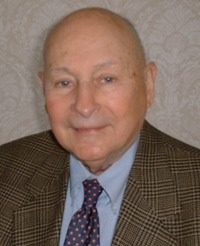
Dames’ Schools provided primary education, and private academies provided moral, literary, and commercial education. There were also, in New England, town-supported Common Schools. These schools were run by local authorities, paid for by local citizens, and provided the kind of basic education that parents approved of. Church elders made sure that these schools provided a good moral education.
The idea of a centralized education system, owned and operated by the state and paid for by all taxpayers, came from Prussia. In 1843 the "Father of Public School Education," Horace Mann, visited Prussia, a state within what is now Germany run according to militarist and centralist principles. Mann was impressed by the Prussians’ central control of curriculum and teacher training. He was also impressed with the idea of compulsory school attendance and the role of the truant officer.
Americans were quite satisfied with educational freedom and did not agitate for a government system supported by taxes. They did not clamor for compulsory education run by centralized government. But, as usual, the liberals and progressives were able to use persuasive propaganda in favor of public schools and rally educators to their cause.
In the 1820s, the free market in education was clearly phasing out the community-run common schools. The private academies were more efficiently organized, provided better instruction, pupil supervision, and social atmosphere. They were less crowded and offered a more practical curriculum. But by the 1850s, thanks to political propaganda, liberal pressure on state legislators, tax-supported public schools were beginning to phase out the private academies.
Let’s take a look at one of these academies. In 1846 a school entrepreneur by the name of James Arlington Bennet was able to create the Arlington Academy for boys at New Utrecht on Long Island, seven miles from New York City. It was housed in an elegant and spacious building on 100 acres of land. According to the academy’s circular, its English curriculum included "All the usual elementary branches, with Rhetoric, Elocution, and English Composition. To this Department are added a splendid pair of Globes, with Compasses, and Maps of the world, designed for the illustration of Geographical, Historical, and Astronomical subjects."
The Academy also taught Latin, Greek, French, Spanish, and Italian. Its Mathematical Department taught Geometry, Algebra, Trigonometry, Differential Calculus, Land Surveying, Navigation, and Lunar Observations. It had a Commercial Department, a Civil Architecture Department, a Chemical and Philosophical Department, a Military Department, and courses in Ethics and Moral Philosophy, Oratory, Agriculture and Horticulture. The academy also provided instruction in Morals and Religion.
Many small towns had their own private academies. Dummer Academy was founded at Byfield, Massachusetts, in 1763. Phillips, at Andover, Massachusetts, in 1778. Phillips at Exeter, New Hampshire, in 1781. Leicester, at Leicester, Massachusetts, in 1783. Derby, at Hingham, Massachusetts, in 1784. Each of these schools was founded by the generosity of some wealthy person.
However, even in poorer towns, the local citizens were able to create excellent private academies. Such was the case in Atkinson, New Hampshire, where in 1787 Atkinson Academy was founded by prominent citizens of the town. It educated both boys and girls. Students from other towns were boarded among local families. A history of the academy describes what a typical day at school was like:
As the pupils entered the schoolroom each morning, the boys bowed and the girls curtsied to the master. Awkward country youths found this an ordeal; some of the boys and girls lost their balance and fell to the floor, greatly to the amusement of their schoolmates… There followed Bible reading and prayer… Then came the classes. Slates were probably in use for most of the written work and the problems in arithmetic… Classes in English grammar parsed, perhaps from the complicated sentences in "Paradise Lost."
Virtually every academy had a debating society. At Atkinson Academy, the subjects debated were of the abstract character so loved by schools of early days: honor versus shame, courage versus fortitude, genius versus application, city life versus country life. In 1815 the question of the justice of Negro slavery was debated for the first time.
Obviously, the private academies suited the American temperament and desire for freedom far more than the government schools, which went on to subvert that love of freedom. Hopefully, the homeschool movement will revive that love of educational freedom in more and more Americans.
Dr. Samuel L. Blumenfeld is the author of nine books on education including NEA: Trojan Horse in American Education, The Whole Language/OBE Fraud, and The Victims of Dick & Jane and Other Essays. Of NEA: Trojan Horse in American Education, former U.S. Senator Steve Symms of Idaho said: “Every so often a book is written that can change the thinking of a nation. This book is one of them.” Mr. Blumenfeld’s columns have appeared in such diverse publications as Reason, The New American, The Chalcedon Report, Insight, Education Digest, Vital Speeches, WorldNetDaily, and others.


